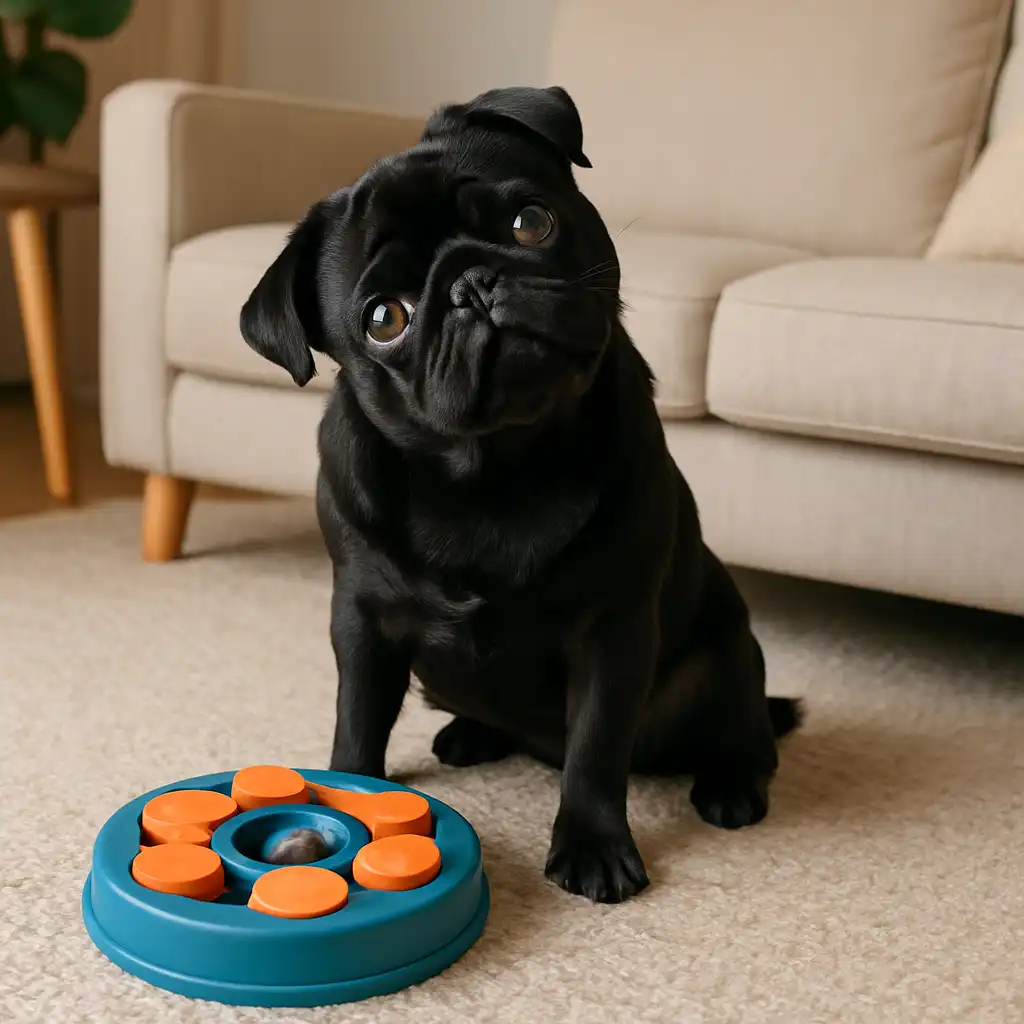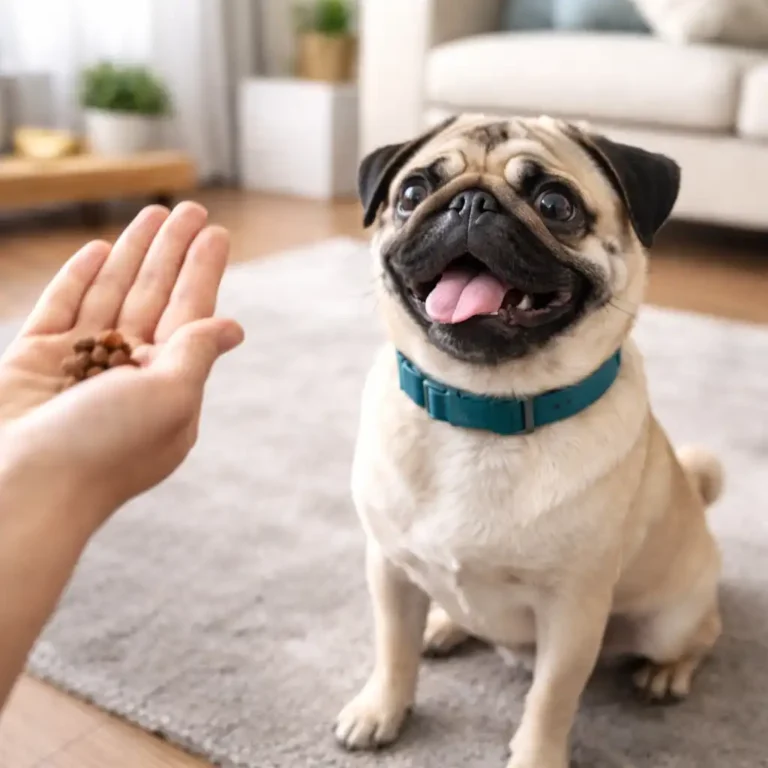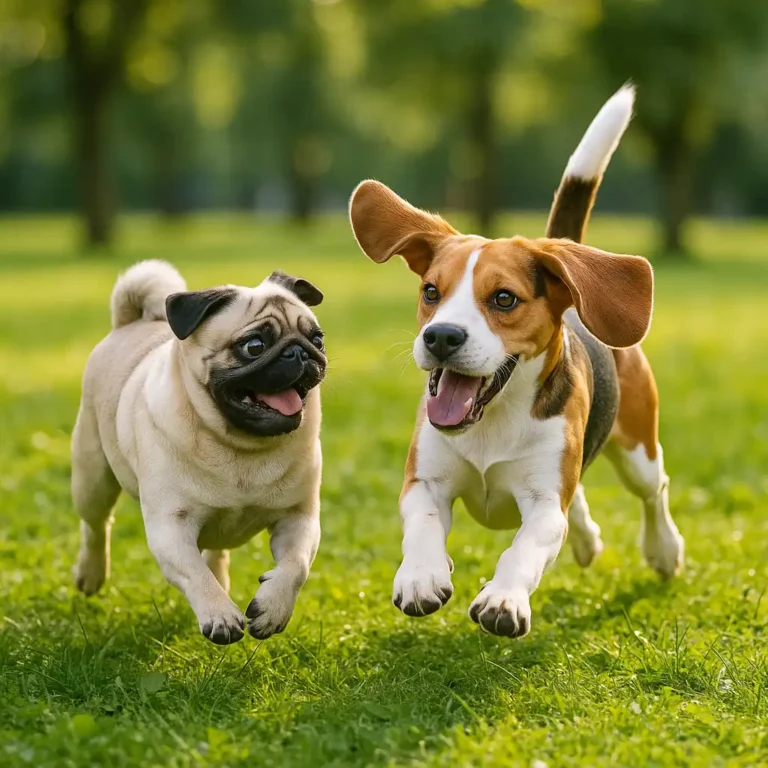How Smart Are Pugs – Understanding Their Personality and Training Style

Disclosure: This post contains affiliate links. As an Amazon Associate, I earn from qualifying purchases—at no extra cost to you.
Last Updated: October 2025
If you’ve ever looked into your pug’s big round eyes and wondered what’s really going on in that tiny head, you’re not alone. Pugs have a special kind of smarts that doesn’t always show up in obedience rankings. They’re emotionally intelligent, observant, and often one step ahead when it comes to reading their humans.
👉 For a full overview of caring for and training your pug, explore our complete guide for pug owners. It covers everything from daily care and behavior tips to nutrition and health essentials.
🔍 How Smart Are Pugs Compared to Other Breeds
Pugs usually fall into the “average intelligence” range when it comes to learning commands—but that’s only half the story. They’re not the kind of dogs who chase sheep or follow complex directions; their true talent lies in understanding people.
Most pug owners quickly learn how intuitive these little dogs can be. They know when you’re happy, when it’s time for dinner, and even when you’re grabbing your shoes for a walk. They read emotion, tone, and movement in ways that make them feel almost human.
🔍 Understanding Pug Personality and Learning Style
Pugs learn through connection, not competition. They respond best to encouragement, patience, and fun. Yelling or scolding rarely works—in fact, it can make them sulk or lose confidence. But a cheerful tone, gentle praise, and a few small treats go a long way.
Short lessons of five minutes or less are perfect for their short attention span. They’ll put in effort when training feels like play, and you’ll notice how proud they look after getting it right. Keep it positive and they’ll give you their best every time.
🔍 Common Challenges When Training a Pug
Pugs are clever enough to get away with mischief if you let them. Their stubborn streak often comes from boredom or distraction, not defiance. They may “pretend” they didn’t hear a command just to see if you’ll give up first!
The trick is to stay calm and consistent. Use simple cues, a cheerful voice, and small rewards for quick successes. Avoid frustration or long sessions—pugs respond to patience and fun, not pressure. When training feels like a game, they’re surprisingly quick learners.
👉 For extra help keeping your pug focused and engaged, check our review of the Brain Training for Dogs program. It’s a gentle, game-based approach that works especially well for clever but stubborn pups.
🔍 How to Keep a Pug’s Mind Sharp
Mental stimulation keeps your pug happy and well-behaved. Try using puzzle feeders for mealtime, hide treats around the room, or play short scent games. Teaching simple tricks like “spin” or “touch” also gives them a boost of confidence and focus.
Rotate their toys every week so they stay curious, and mix in short training bursts throughout the day. A few minutes of problem-solving helps your pug stay engaged, reduces stubborn behavior, and strengthens your bond at the same time.
📌 Key Takeaways
- Pugs are emotionally intelligent and excellent at reading people.
- Short, fun, reward-based sessions work best for training.
- Stubbornness usually means boredom or low motivation.
- Mental challenges like puzzles and scent games keep pugs sharp.
🟢 FAQs
Q: Are pugs considered intelligent dogs?
Yes! Pugs may not master complex commands quickly, but they’re emotionally aware and highly tuned to their owners.
Q: Are pugs hard to train?
They can be if lessons drag on too long. Keep sessions short, upbeat, and treat-based for the best results.
Q: What are some good brain games for pugs?
Puzzle feeders, hiding treats under cups, or teaching small tricks like “high-five” or “spin” are all great options.
✅ Conclusion
So, how smart are pugs? They’re not the kind of dogs who solve puzzles or perform precision routines—but their emotional smarts and deep understanding of people make them special in their own way. When you train with kindness and patience, you’ll see just how clever and loving these little dogs really are.






